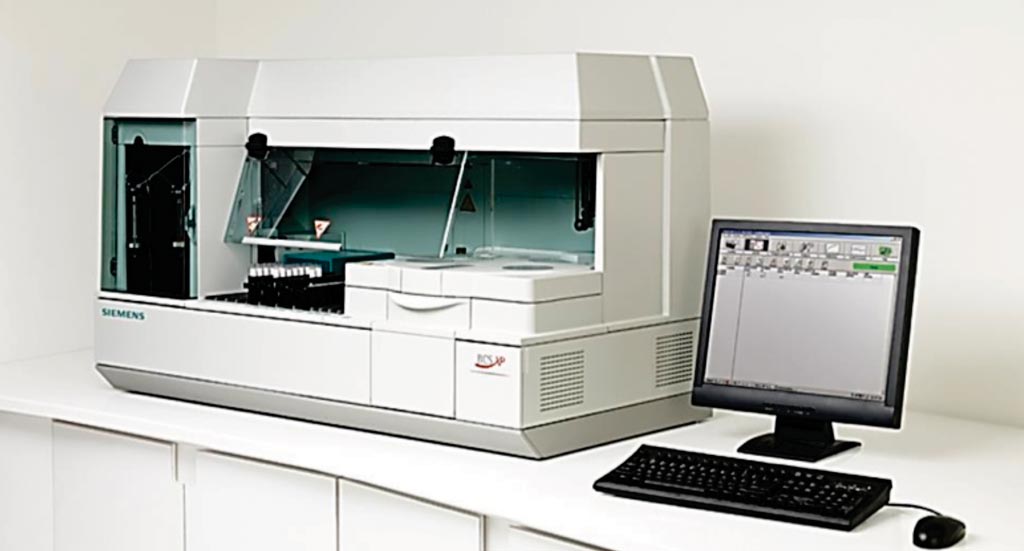Comprehensive Metabolic Profiling Assessed for Chronic Inflammation
By LabMedica International staff writers
Posted on 08 Jan 2018
Inflammation is a corporeal response to damaging stimuli associated with the activation of various molecular mechanisms. Both the local and systemic responses initiated by an inflammatory process indicate an imbalance in metabolism in the tissues affected.Posted on 08 Jan 2018
Inflammation occurs as an immediate protective response of the immune system to a harmful stimulus, whether locally confined or systemic. In contrast, a persisting chronic, inflammatory state, even at a low-grade, is a well-known risk factor in the development of common diseases like diabetes or atherosclerosis.

Image: The BCS XP System, one of the most widely used fully automated hemostasis analyzers (Photo courtesy of Siemens Healthineers).
Scientists at the University Medicine Greifswald (Greifswald, Germany) assessed the metabolic patterns associated with alterations in inflammatory markers. Based on mass spectrometry and nuclear magnetic resonance spectroscopy they determined a comprehensive panel of 613 plasma and 587 urine metabolites among 925 apparently healthy individuals. Associations between inflammatory markers, namely high-sensitivity C-reactive protein (hsCRP), white blood cell counts (WBC), and fibrinogen, and metabolite levels were tested by linear regression analyses controlling for common confounders.
Fibrinogen concentrations were determined in citrate plasma samples, using a BCS-XP system. WBC concentration was determined in EDTA whole blood samples using the Sysmex XT 2000, XE 5000, or SE9000 analyzers or the Siemens Healthcare Diagnostics Advia 2120i. Targeted metabolomics profiling of the plasma samples was performed using the AbsoluteIDQ p180 Kit.
This approach allows simultaneous absolute quantification of 188 metabolites using a combination of liquid chromatography and mass spectrometry. Urine samples were measured on a Bruker DRX-400 NMR Spectrometer.
The team found that HsCRP, WBC, and fibrinogen were significantly associated with 71, 20, and 19 plasma and 22, 3, and 16 urine metabolites, respectively. Identified metabolites were related to the bradykinin system, involved in oxidative stress (e.g., glutamine or pipecolate) or linked to the urea cycle (e.g., ornithine or citrulline). In particular, urine 3’-sialyllactose was found as a novel metabolite related to inflammation. Prediction of an advanced inflammatory state based solely on 10 metabolites was completely feasible. The study was published on November 30, 2017, in the journal BMC Medicine.
Related Links:
University Medicine Greifswald













